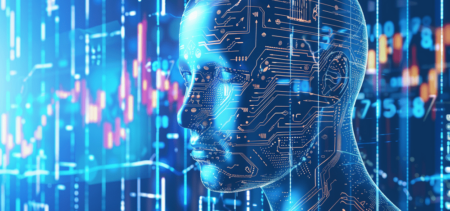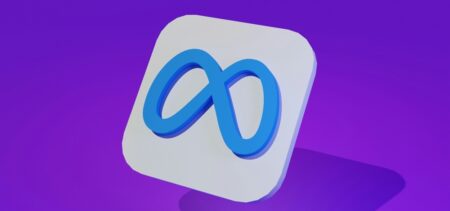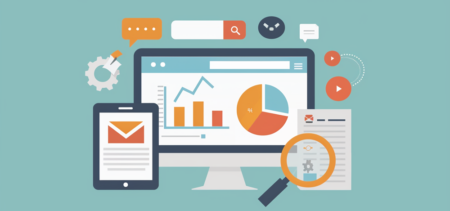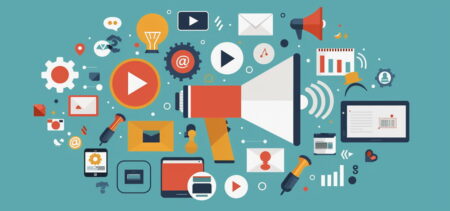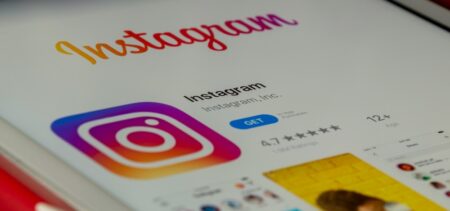Machine learning and artificial intelligence have fundamentally changed the world. Seeping into every sector, these powerful tools have made large data models accessible and easy to work with. They give rise to predictive analytics and automation, with so many use cases that it’s dizzying trying to keep track of them all. Thanks to the proliferation of ChatGPT and other AI-powered applications, we can generate unique content in a matter of minutes. Essays, meeting notes, emails, and even resumes can be drafted with a few carefully worded prompts. If you can think of it, AI can produce it.
But that’s not where it ends. With software tools like Open AI’s DALL-E, Microsoft’s Image Creator, and Jasper, text-to-image is here. The only real limitations are in your imagination. And with the much-anticipated launch of Sora, text-to-video has all but catapulted us into the future sci-fi movies promised us! Content marketers have found the land of milk and honey; effective visual storytelling that can be scaled, produced on a budget, and finally, within deadlines. Here’s how AI-generated content creation is a game changer for digital marketers.
But first, how does it work?
Machine learning and artificial intelligence are used interchangeably. And that’s because when we talk about AI in the mainstream, we’re loosely referring to the subset of machine learning. Essentially, machine learning is the ability to process data and identify patterns without being explicitly programmed to do so. These machines use pattern recognition to make predictions. A very simple example of this is your cellphone’s predictive text feature. After learning the way you type, and the words you typically use, your phone is able to start predicting what words follow in a sequence and offer these to you.
We’ve certainly come a long way since the dawn of machine learning. From using the technology for complex equations and programming to AI’s predictive analysis being used in everything from your Netflix algorithm to profiles that appear on your LinkedIn explore page. And with our ability to feed machines more than just raw data and numbers, the scope of what they are able to learn has significantly increased. Sentence structure, grammar rules, and word choices are just a few of the rules AI is able to process, and thus, learn and replicate.
Initially, this gave us tools like chatbots, and has now been expanded to include the kind of work that ChatGPT is able to churn out; essays, emails, resumes, letters, poems; anything and everything that can be written, based on everything that has ever been written.
The more we teach AI, the better it becomes. Not only is it able to differentiate between different types of content, but it can also adjust tone of voice, generate content for specific audiences, and writing styles; from a second-grader’s book report to a PhD-level dissertation (although we certainly don’t recommend using AI for these purposes). And all this, in a matter of minutes.
For marketers, this opens up a world of possibilities for content.
If you know your brand’s audience inside-out, then creating the prompts to generate content for social media captions, email marketing campaigns, or blog posts is a piece of cake! That being said, AI isn’t perfect, and a human eye will always be needed to comb through and edit the content for quality control. But like any good tool, AI is an excellent helper, reducing time and improving output.
Benefits of AI in Digital Marketing
With new AI tools constantly coming to market, each one pushing the boundary just a little more than the last, digital marketers are spoiled for choice when it comes to content creation.
- Reduces time spent on marketing material
AI is a powerful tool in the digital marketer’s arsenal, particularly as it pertains to content generation. Whether it’s a product launch, a go-live day, or a sales push, there’s a lot to keep in mind. There’s a ton of cross-department collaboration between copywriters, graphic designers, the art department, editors, and proofreaders; the only thing they all have in common is the tight turnaround times. AI offers marketing teams huge benefits by saving time and resources.
When it comes to the fast-paced world of online marketing, things move quickly; trends are here today, gone tomorrow, and being able to respond in a timely manner is crucial for brands trying to get noticed in a sea of competitors. This could look like hopping on trends like Spotify’s annual Wrapped campaign or responding to User Generated Content (UGC) that’s gone viral, like the Stanley Cup car fire testimonial.
This is where AI really shines. Instead of starting from scratch with a photoshoot for collateral, or recycling the same stock images used by every other brand, text-to-image AI tools can help designers come up with incredible images based on creative concept prompts.
- Customized Content
Social media platforms and websites store a wealth of user data and information. Studies suggest that close to 86% of customers prefer a personalized ad, signaling the brand understands and values them. With artificial intelligence, businesses can segment customers according to their interests, demographics, location, search history, and browsing habits.
By better understanding customer behavior and catering to what consumers are looking for, brands and businesses can boost their return on investment by as much as 200% and see brand loyalty metrics increase by an estimated 28%.
- Generate Captions and Content Ideas
Part of the grind in digital marketing is thinking of new campaigns, ideas, and even captions for social media. One of the biggest benefits of AI is that it can do some lifting for you. Because different prompts generate unique responses, it’s possible to use tools like ChatGPT to assist in creating a content schedule, generating captions for social posts, and topic ideas for blog posts and emails.
The benefit of integrating AI into data analytics is the ability to produce unique content that appeals to different audience segments, ensuring you’re always getting relevant ideas from AI tools.
- Chatbots for Customer Service
For businesses operating online, customer service is paramount. Customers expect a quick turnaround time on questions and rapid responses to their queries. Processing returns, scheduling deliveries, and assisting customers with refunds are just some of the issues that chatbots can resolve instantly. With artificial intelligence, businesses and brands have the opportunity to meet customers where they’re at in their native environments, to reduce friction. Even more importantly, the data collected from customer queries can be analyzed by AI to produce insights that improve the overall CX.
Conclusion
In a digital marketing landscape where customers are expecting individual treatment, and clients need to stand out, digital marketers are increasingly under pressure to meet deadlines, segment target audiences, increase ROI, and help brands distinguish themselves in the marketplace.
These are resource-intensive activities that are especially taxing on time, skills, and finances. With artificial intelligence, digital marketers have the capability to generate unique content, both written and visual, with the help of generative AI tools like OpenAI’s ChatGPT and DALL-E. Using AI to mine data sources helps marketers better understand their customer segments across a number of data points like search history, online behavior, and demographics.
With the need to rapidly respond to trends, UGC, and viral moments, AI can be helpful in minimizing the legwork required to create unique content that appeals to your audience.






















